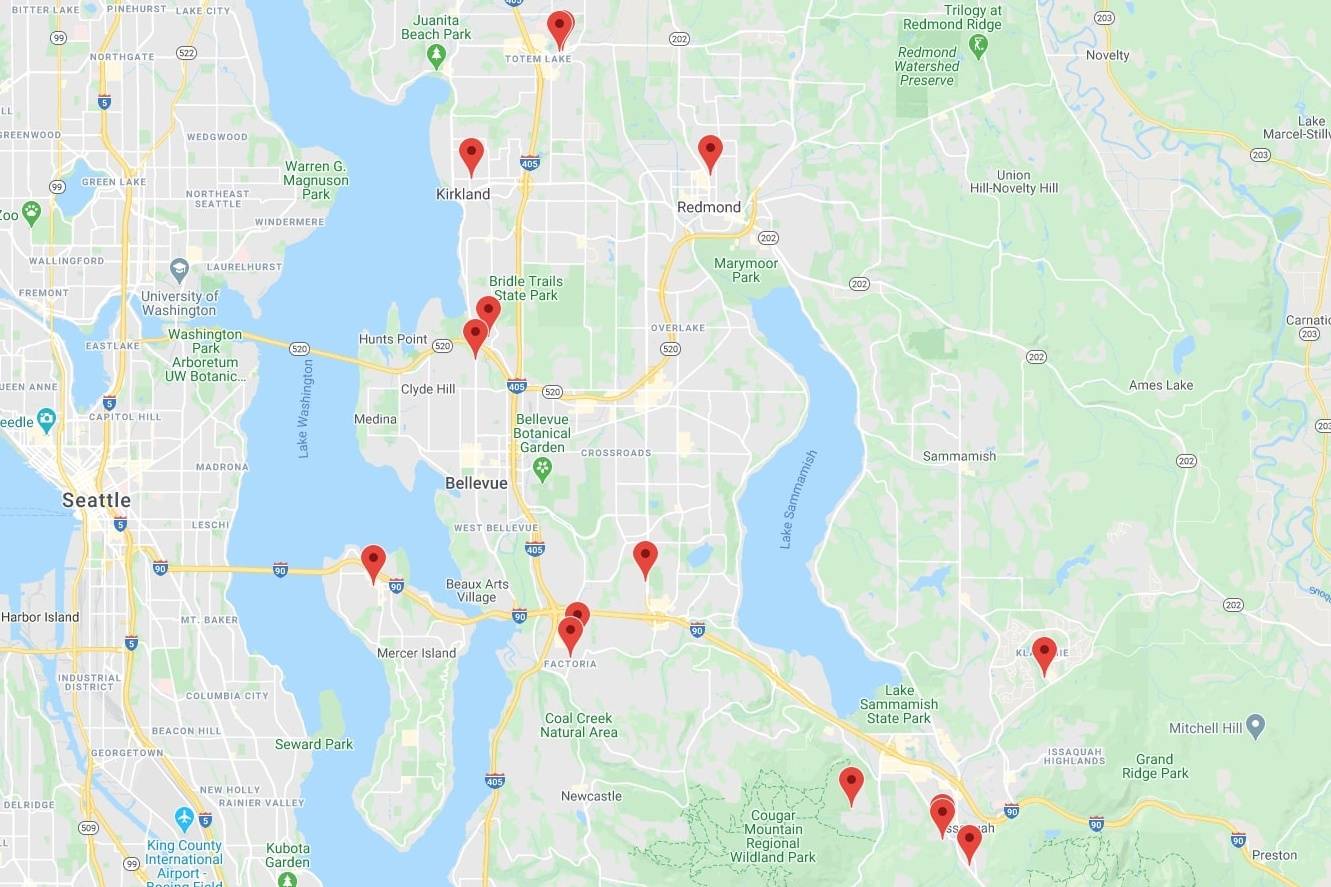Tenants of the low-income housing provider Imagine Housing on the Eastside are asking management for additional relief during the COVID-19 pandemic.
During a virtual fundraiser for Imagine Housing on May 11, several tenants protested outside the house of the nonprofit’s CEO, Villette Nolon. Clad in protective masks and standing apart from each other, the demonstrators held signs asking for rental relief and assistance through the pandemic.
One of the tenant organizers who has been involved in petitioning Imagine Housing for change for months is Kara Latchinian. She’s also a part of the Imagine Housing Tenants Union. When she moved in two years ago, she said she was paying about 70 percent of her income in rent, and since then, her income has gone down as rent has increased.
Her situation isn’t uncommon, she said, and the pandemic has only exacerbated the stress on many tenants.
“It’s not a sustainable system to be able to keep people housed,” Latchinian said.
Michell Billing is another resident, and fellow member of the tenants union. She said she’s concerned there hasn’t been adequate maintenance, both before and during the pandemic. Billing also said that despite raising about $90,000 and donations of gift cards for gas and food, many tenants haven’t seen assistance from Imagine Housing.
“They are using the coronavirus as a way to get more donations and they’re telling the public that those donations are coming back to us, and they’re not,” Billing said.
Latchinian said she had received a $25 gift certificate, and believes it was because she was persistent in asking. However, while there have been eviction moratoriums enacted through the end of July, and payment plans have been discussed, neither tenant said it would be adequate. Many of their neighbors would be unable to pay rent in addition to back payments, they said.
Many of these issues were presented in an online petition earlier this year. The petition garnered 150 signatures from tenants and community supporters, said Helena Benedict with the Tenants Union of Washington State. When it was given to Imagine Housing, she said the requests were denied.
“It didn’t really feel like they were listening at all,” Benedict said.
CEO Villette Nolon said during a phone interview that Imagine Housing was committed to not evicting people because of back rent. She said they follow and expand upon models proposed by the city of Seattle, which outlines time frames for renters to pay back rent.
“We know people are losing their jobs. We do have to work out a payment plan with each of the households,” she said. “Our objective is to keep people housed. That is the mission.”
Gift cards and other resources have been distributed to residents based on need, she said. The provider houses nearly 640 households across its various properties. The maintenance crews have been entirely reassigned to sanitation duties and emergency repairs, like broken pipes. As such, they haven’t been focusing on other repair requests.
However, Benedict said tenants have told her a lack of repairs has been an ongoing issue. Last year, Imagine Housing was issued a code violation by Bellevue over bats living in an apartment. However, an Imagine Housing spokesperson said the violation was later retracted by the city.
In 2018, some residents marched in protest of several 10-day comply or leave notices which had been delivered. Rent had also increased at the properties.
On rent, Benedict said that even during the pandemic, when many nonprofits are hurting for funding, Imagine Housing should look for ways to provide rent forgiveness internally for those who need it.
“We think they should transparently and honestly think and talk about when they can waive rent for vulnerable families,” she said.
In 2018, Imagine Housing had some $700,000 in reserve. Benedict said Imagine Housing could use some of that to forgive rent for residents in need.
Nolon said the board of directors has required that funding to be spent on operation costs. She said Imagine Housing has been encouraging residents to use community resources, like a United Way housing fund that provided $1.5 million in relief to renters in the region.
Latchinian said she wants the chance to have an open dialogue with Imagine Housing and its board.
“I just feel like our voices are being shut down, and perhaps not everyone has the opportunity to hear what we have to say,” she said.
This story has been updated with additional information from Imagine Housing, including its 2018 general fund reserve and Bellevue’s retraction of a code violation.


